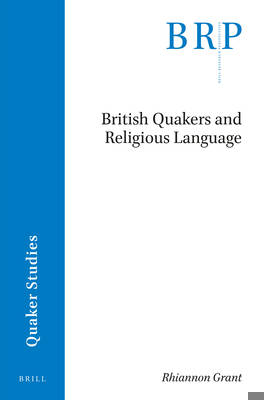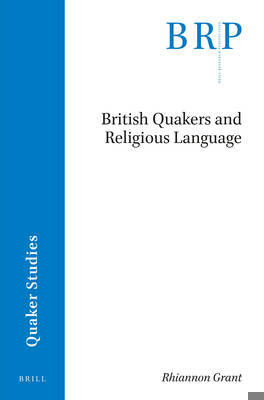
- Afhalen na 1 uur in een winkel met voorraad
- Gratis thuislevering in België vanaf € 30
- Ruim aanbod met 7 miljoen producten
- Afhalen na 1 uur in een winkel met voorraad
- Gratis thuislevering in België vanaf € 30
- Ruim aanbod met 7 miljoen producten
Zoeken
Omschrijving
In British Quakers and Religious Language, Rhiannon Grant explores the ways in which this community discusses the Divine. She identifies characteristic patterns of language use and, through a detailed analysis of examples from published sources, uncovers the philosophical and theological claims which support these patterns. These claims are not always explicit within the Quaker community, which does not have written creeds. Instead, implicit claims are often being made with community functions in mind. These can include a desire to balance potentially conflicting needs, such as the wish to have a single unified community that simultaneously welcomes diversity of belief. Having examined these factors, Grant connects the claims made to wider developments in the disciplines of theology, philosophy of religion, and religious studies, especially to the increase in multiple religious belonging, the work of nonrealist theologians such as Don Cupitt, and pluralist philosophers of religion such as John Hick.
Specificaties
Betrokkenen
- Auteur(s):
- Uitgeverij:
Inhoud
- Aantal bladzijden:
- 104
- Taal:
- Engels
- Reeks:
Eigenschappen
- Productcode (EAN):
- 9789004378704
- Verschijningsdatum:
- 7/06/2018
- Uitvoering:
- Paperback
- Formaat:
- Trade paperback (VS)
- Afmetingen:
- 150 mm x 231 mm
- Gewicht:
- 158 g

Alleen bij Standaard Boekhandel
+ 247 punten op je klantenkaart van Standaard Boekhandel
Beoordelingen
We publiceren alleen reviews die voldoen aan de voorwaarden voor reviews. Bekijk onze voorwaarden voor reviews.











